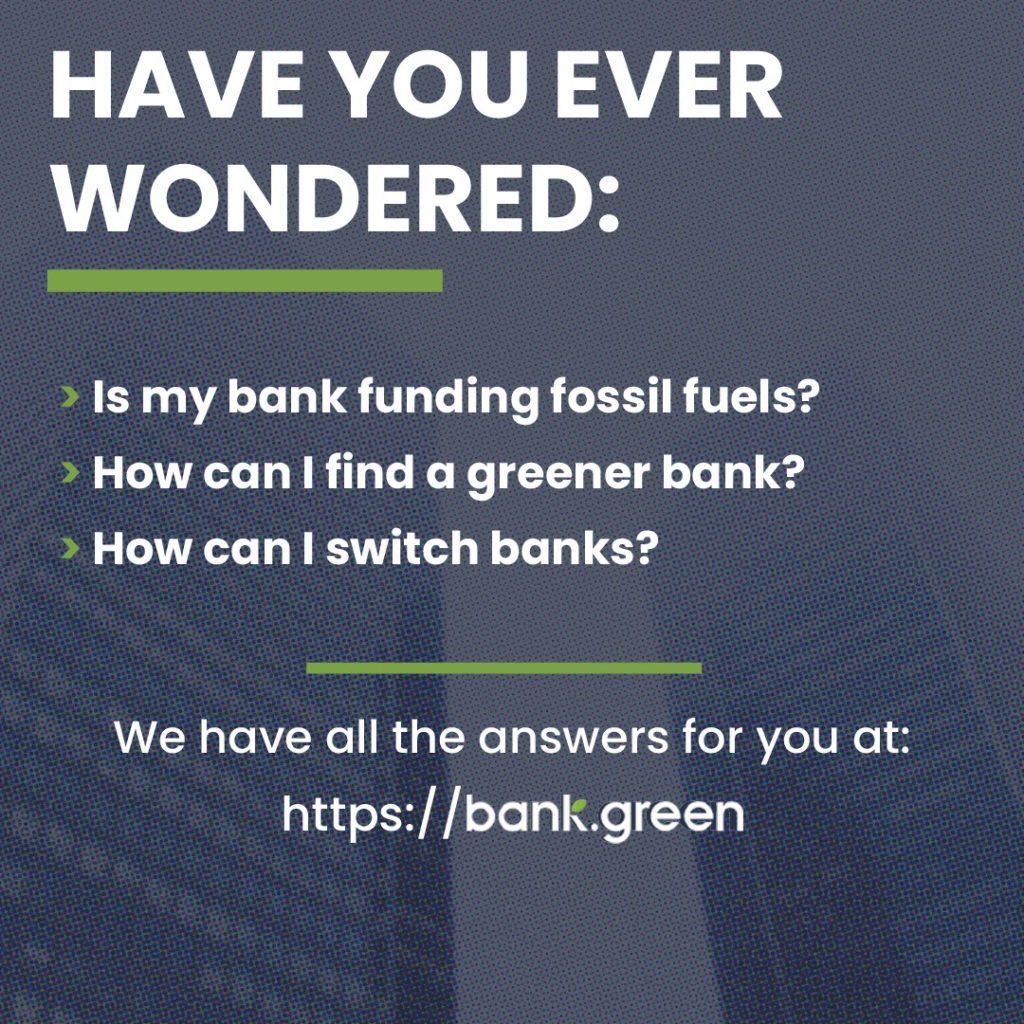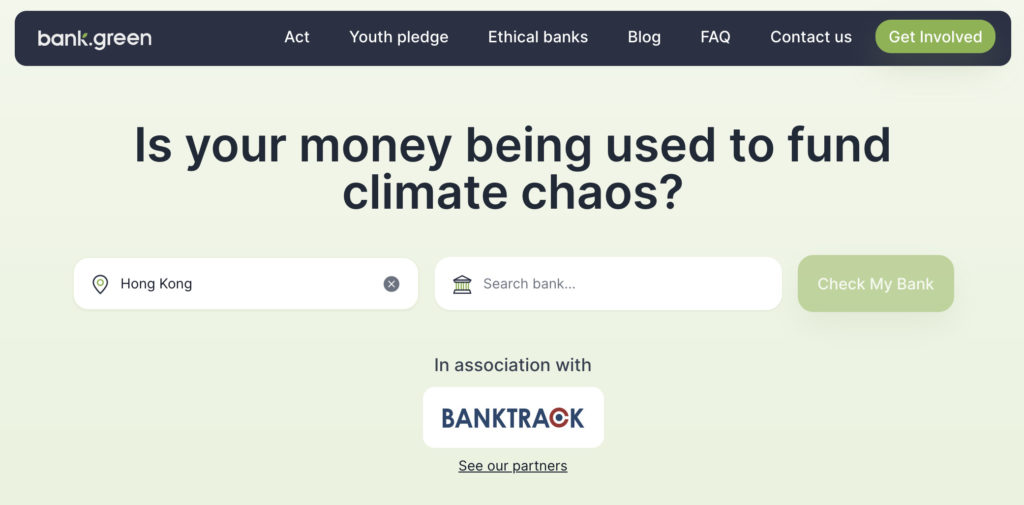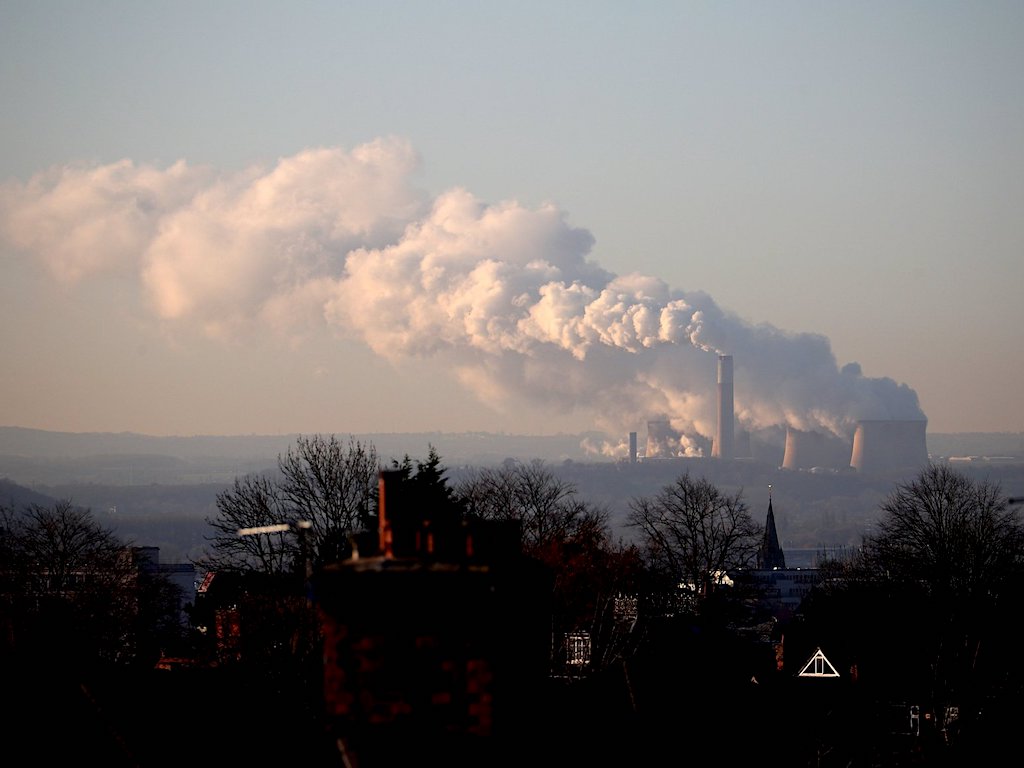Are Fossil Fuels Funding Your Retirement? Bank.Green Tells You If Your Money Is Backing Climate Change
3 Mins Read
Many banking customers don’t realise that where they choose to save or invest money could make a difference when it comes to the climate crisis. It’s the premise of the divestment movement, which pressures the financial industry to stop funding fossil fuels in order to protect the planet. But as the average individual customer, how do you figure out whether your bank is one of the bad guys? That’s where Bank.Green comes in.
Launched earlier this year in April, the new Bank.Green online tool helps everyday banking customers figure out whether their money is funding some of the most environmentally damaging projects in the world. On the website, users can investigate their bank’s fossil fuel records and whether they are contributing to the whopping US$3.8 trillion poured into dirty energy projects since the Paris Agreement.
Once they discover the climate-destroying activities that their bank might be partaking in, Bank.Green then offers users the opportunity to explore sustainable banking alternatives and how to contact their bank to switch accounts – streamlining the entire bank-switching process to make it easy for individuals to make sure their money isn’t harming the environment.

Past climate campaigners have waged important public awareness campaigns against banks that fund fossil fuels, and we are excited to build upon their work.
Zak Gottlieb, Campaign Coordinator, Bank.Green
Some examples of green banking alternatives that have emerged lately include Florida-based Climate First Bank (I/O), which offers customers all the conventional services of a bank but with special ESG services such as loan options for solar projects. Neobank Aspiration has also risen in popularity for its 100% clean financial services, and has gained the backing of Hollywood celebrity Robert Downey Jr.’s new climate tech venture fund.
“Past climate campaigners have waged important public awareness campaigns against banks that fund fossil fuels, and we are excited to build upon their work,” said Zak Gottlieb, Bank.Green campaign coordinator for the website’s Money Movement initiative.
Money Movement aims to “sound the alarm” over the banking sector’s role in climate change, as well as empower individuals with the information on how to act. Bank.Green says that to date, many customers are still unaware that their banks – recognisable names like HSBC and Barclays – are actively financing fossil fuels.
“Our campaign is based on the belief that in addition to campaign groups, banks also need to hear directly from their customers. It’s one thing to ignore a campaign group, but if your customers are unhappy, your business is in trouble,” explained Gottlieb.

Banks need to hear directly from their customers. It’s one thing to ignore a campaign group, but if your customers are unhappy, your business is in trouble.
Zak Gottlieb, Campaign Coordinator, Bank.Green
“That’s why we are building a community of customers who are empowered to take action against their own banks.”
As public awareness grows, banks are likely to come under greater pressure to clean up their act. HSBC, for instance, is due to face a shareholder vote that could force the banking giant to reduce its fossil fuel exposure next year, while Goldman Sachs made its bold pledge to reach net-zero by 2030 to fend off scrutiny.
Investors are also increasingly turning to sustainable or ESG approaches in recent months, especially since Covid-19, which saw demand for green financial products surge.
However, as sustainable investing becomes a trend, one recent report warns of rampant greenwashing in the financial industry, with the world’s top 20 biggest ESG funds “stuffed full of polluters and sin stocks”.
Lead image courtesy of Hannah McKay / Reuters.




